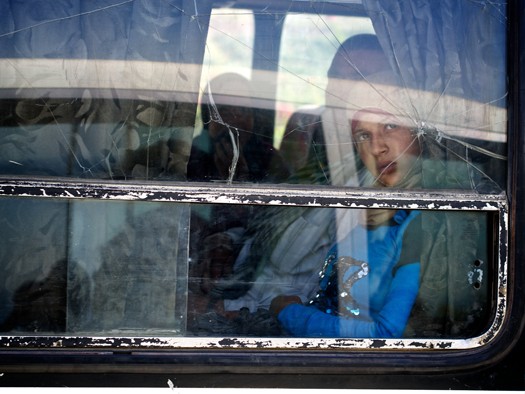For decades, Lebanese governments have made only partial and ineffective attempts to hold powerful individuals, groups, and foreign states accountable for violations committed on Lebanese soil, including against civilians. The consequences of their failure to act – for victims and Lebanese society – are grave.
ICTJ's new report, Failing to Deal with the Past: What Cost to Lebanon?, looks at the culture of impunity for serious violations of human rights, which continues to thrive in Lebanon.
| The report looks at what steps successive Lebanese governments have taken since 1990 to address serious violations of international humanitarian law and human rights law committed during the war and after through prosecutions, institutional reform, truth seeking, and reparation. |
|
It also looks at why these measures have largely fallen short of guaranteeing victims’ rights.
"The war left Lebanon with destruction on a massive scale, and the Lebanese people with serious traumas," says Carmen Abou Jaoudé, head of ICTJ’s Office in Lebanon.
“To effectively transition from a state of war to a state of peace, Lebanon would have needed a far-reaching approach to justice and reform. This is the best way to re-create the social contract and for the state to win back the trust of the people.”
'State-sponsored' Amnesia
The agreement that ended the war (commonly known as the Ta’if Agreement) failed to ensure that investigations and formal inquiries would be part of the post-war settlement. It reinforced the political and social divisions of the war, made the ranks of the warring parties immune from prosecution, and left factions in place to compete over differing versions of Lebanese history.
The report revisits the amnesty laws that have prevented Lebanon from examining and prosecuting war-time violations, contributing to a “state-sponsored amnesia” about the war. As a result, many thousands of victims still await answers and justice for crimes they suffered many years ago.
“Impunity must not be the price that society pays for stability,” explains David Tolbert, president of ICTJ. “That kind of political bargain results in a fragile peace – that may well prove unsustainable, particularly when regional conflicts threaten to spill over the border and exacerbate existing tensions. The best guarantee of non-recurrence is the construction of a society that genuinely respects human rights, not one built on short term political expediency.”
While the report recognizes many of the conflicting views surrounding the Special Tribunal for Lebanon, it sees the court, which just opened its first trial on January 16, as the first significant attempt to pursue accountability for political violence in Lebanon, though for a limited number of crimes.
|
According to the report, international actors and neighboring states have also benefited from the situation of impunity in Lebanon, as they have not been held accountable for violations committed by their armed forces or their agents in Lebanese territory. |
Says Abou Jaoudé: “Lebanon is at a crossroads, and it’s clear that the path toward stability requires finally hearing the voices of victims and fulfilling their rights to justice. It is the duty of the state to foster this new culture that favors the rule of law over retribution and violence.”
The report is part of a project funded by the European Union, called “Addressing the Legacy of Conflict in a Divided Society,” which is intended to support and inform debates on the legacy of the war in Lebanon. It is complemented by two other publications: mapping of serious violations of international law from 1975 to 2008 (released in September 2013) and results of a qualitative study of the perceptions and expectations of the Lebanese people regarding dealing with the past (to be released later in 2014).
The report "Failing to Deal with the Past: What Cost to Lebanon?" is available in both English and Arabic. Photo: Thomas Leuthard via Flickr
